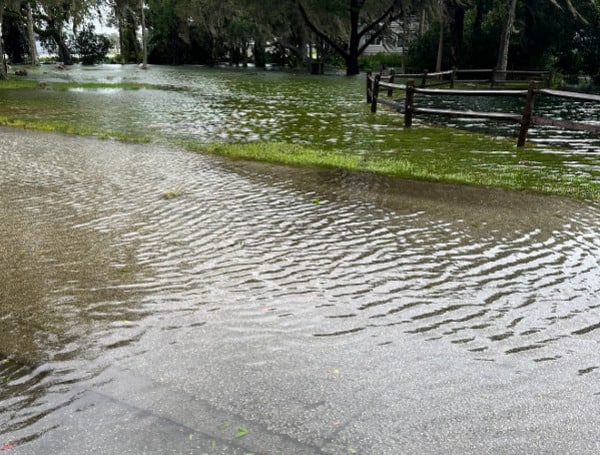Flooding From Hurricane Idalia In Citrus County, Florida. As it tries to move customers into the private market after three years of massive growt
As it tries to move customers into the private market after three years of massive growth, the state’s Citizens Property Insurance Corp. could start to see its number of policies decrease.
Citizens President and CEO Tim Cerio said Wednesday that Citizens is now forecasting it will have about 1.3 million policies at the end of 2023, after earlier estimates of 1.5 million to 1.7 million policies. It had 1.399 million policies as of Friday.
Cerio pointed to what is known as a “depopulation” effort aimed at shifting policies from Citizens to private insurers. Also, Florida has not had any property-insurer insolvencies since early this year. In the past, some customers of insolvent insurers have turned to Citizens for coverage.
In the news: Florida Jobless Claims Decrease
“Depop (depopulation) is critically important,” Cerio said after a meeting of the Citizens Board of Governors in Tallahassee. “We’ve got to do it for the health of the market.”
The Citizens board met after insurance regulators this month approved rate increases for Citizens customers. In part, rates will increase an average 11.5 percent for homeowners with the most-common type of policies, known as “multi-peril” policies, according to information provided to the board.
When other types of personal-lines residential policies are factored in, such as wind-only and mobile-home policies, the average increase will be 12.3 percent. Various types of commercial policies, including condominium association policies, are expected to see an average increase of 10.2 percent.
The personal-lines rate increases will take effect Dec. 16, while the commercial increases will take effect Nov. 20.
Citizens was created as an insurer of last resort, but its number of policies has exploded during the past three years as private carriers have dropped customers and sought large rate increases because of financial problems. As illustrations of the growth, Citizens had 511,055 policies on Sept. 30, 2020; 708,919 policies on Sept. 30, 2021; and 1,071,850 policies on Sept. 30, 2022, according to data on its website.
Many state leaders have long sought to move customers out of Citizens into the private market, at least in part because of the risk that policyholders across the state — including people who do not have Citizens policies — could be forced to help pay claims after a major hurricane or multiple hurricanes.
In the news: Florida CFO Patronis Denounces ‘Taylor Tax’ On Tickets For Reselling ‘Swifties’
But officials say Citizens often charges lower premiums than private insurers, reducing the incentive for customers to leave Citizens.
Lawmakers during a December special legislative session made a series of changes to try to bolster the private market, including taking steps to help shield companies from costly lawsuits. Also, to try to move policies into the private market, lawmakers required Citizens customers to accept offers of coverage from private insurers if the offers are within 20 percent of the cost of Citizens premiums. For example, if a homeowner received an offer of coverage from a private insurer that is 19 percent higher than the Citizens premium, the homeowner would have to accept it.
Private companies in recent months have received state approval to make hundreds of thousands of “takeout” offers to Citizens customers. That included regulators in July approving proposals by five carriers to assume up to 184,000 policies from Citizens in October. Also, on Sept. 1, regulators approved proposals by seven carriers to assume up to 202,000 policies in November.
Not all of those policies will leave Citizens, as offers might include premiums that are far higher than what Citizens charges — beyond the new 20 percent premium threshold.
In the news: Senate Adopts Policy Requiring Even Pennsylvania Sen. John Fetterman To Wear A Suit
But Citizens officials expressed concerns Wednesday about making sure customers targeted by the private companies see the offers and make informed decisions. One of the concerns stems from companies making offers to large numbers of customers that would lead to premium increases higher than 20 percent.
If offers are higher than the 20 percent threshold, policyholders have to notify Citizens that they want to keep Citizens coverage. The concern, at least in part, is that some customers will not read the notices and will be shifted into the private market at much-higher rates.
“It feels to me like they (carriers) are banking on people not reading their mail,” Charlie Lydecker, a member of the Citizens Board of Governors, said.
Android Users, Click To Download The Free Press App And Never Miss A Story. Follow Us On Facebook and Twitter. Signup for our free newsletter.
We can’t do this without your help; visit our GiveSendGo page and donate any dollar amount; every penny helps

